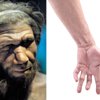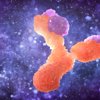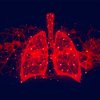Fritextsökning
Artiklar per år
Innehållstyper
-

Neanderthal gene variants may cause Viking disease
A new study suggests that the so-called Viking disease, which affects the hand function in many older people, may be linked to gene variants inherited from Neanderthals.
-

Study: Chat GPT is more empathetic than doctors
The AI tool Chat GPT is not only more accurate when it comes to answering patient questions – the chatbot is also perceived as almost 10 times more empathetic than real doctors, a new study reveals.
-

Antikroppar tog form med hjälp av artificiell intelligens
Språkmodeller, såsom Chat GPT, som bygger på artificiell intelligens kan användas till en rad olika saker. Nu har forskare, med en språkmodell tillverkad av ett välkänt amerikanskt företag, i en ny studie kunnat designa antikroppar, rapporterar Nature.
-

Alligators aktie upp kraftigt efter delårsrapport
Immunterapibolaget Alligator Bioscience steg kraftigt på börsen på tisdagen efter en delårsrapport där bolaget uttrycker optimism om en accelererad utveckling för sin läkemedelskandidat mitazalimab mot bukspottkörtelcancer.
-

He got inside the head of Sweden’s vaccine hunter
The hunt for the COVID-19 vaccine is the theme of the new book Vaccinjägaren (The Vaccine Hunter). It tells the story of Richard Bergström’s mission as Sweden’s national vaccine coordinator and the scheming that went on behind the scenes in Europe
-

The impact of the recession on the Swedish medtech sector
We need health care regardless of whether the economy is good or bad, but the current recession also affects the Medtech sector.
-

Läkemedelsdesign till nya höjder – med Elon Musks rymdsond
Kan tyngdlöshet öppna för nya och bättre sätt att designa läkemedel? Frågan ställs av Bristol Myers Squibb och svaret hoppas man hitta på en plats dit få läkemedel färdats: yttre rymden.
-

Meeting with focus on South Korea and Japan’s life sciences
Large, complex and exciting – this is how Britta Stenson, Business Sweden, describes the life science markets of Japan and South Korea, which took centre stage during a webcast seminar.
-

Tuberkulosbakterier ska svältas ut - ny substans prövas på människa
Det amerikanska forskningsföretaget Calibr planerar att under ett år genomföra en klinisk studie med ett nytt sorts läkemedels mot tuberkulos.
-

The Swedish National Board of Health and Welfare rejects prioritising andrology as a speciality
Male infertility can be linked to a shorter lifespan and several severe diseases, but when couples who want children are examined, the focus is on the woman. Experts in the field claim that andrology needs to become a speciality in Sweden to increase awareness and knowledge. But the Swedish National Board of Health and Welfare says that it is not a priority.
-

“An entire industry is about to be wiped out”
According to Jennie Ekbeck, CEO of Umeå Biotech Incubators, Sweden risks not having any small diagnostic companies left in five years.
-

Column: ”Life as a F1 race”
"The F1 car makes several pit stops during a race and during a lifetime the human being may also have to come in several times for maintenance", Björn Ursing writes in a column.
-

A surprising discovery about the immune system in cases of cancer
Professor Göran Jönsson is trying to understand why some patients benefit from immunotherapies while others don’t. A couple of years ago, he made a surprising discovery about the function of the immune system.
-

Musik bättre än piplarm – kan ljuddesign göra vården säkrare?
Om monotont blippande, pipande och surrande från medicinsk utrustning ersattes med mer musikaliska toner – då skulle vården kunna bli både bättre och säkrare. Det hävdar amerikanska och kanadensiska forskare i en ny studie.
-

Helsingborgsbolag i licensavtal med läkemedelsjätte
Det Helsingborgsbaserade bioteknikbolaget Aqilion har ingått ett licens- och samarbetsavtal med det tyska multinationella läkemedelsföretaget Merck om utveckling och kommersialisering av nya läkemedel mot autoimmuna och inflammatoriska sjukdomar.
-

Claims of life science companies fleeing abroad is a myth according to survey
The claim that life science companies are moving abroad is exaggerated. In fact, only a tiny percentage is leaving the country, according to a survey.
-

Rekrytering slutförd till Alzecures smärtstudie
Den sista patienten har nu rekryterats till Alzecures pågående kliniska studie som utvärderar bolagets ledande läkemedelskandidat ACD440 mot nervsmärta.
-

"Unclear proposal from the EU Commission on how to solve the MDR challenges"
Even before the EU regulation on medical devices (MDR) came into force, medical technology companies and doctors were concerned that it would endanger the availability of medical devices in the EU. Unfortunately, the fears have come true.
-

Immunovia rekryterar från Roche
Cancerdiagnostikföretaget Immunovia har anställt Lara E Sucheston-Campbell som ansvarig för kliniska och medicinska ärenden, eller Head of Medical and Clinical Affairs.
-

Sweden is organising a large life science conference as part of the EU presidency
On 26-27 June, Sweden will host a European meeting on life science.
-

“Everyone is screaming for talent”
Attracting talent is one of the life science industry’s major future challenges, which was one of the conclusions of the panel discussion that ended the New Horizons in Biologics & Bioprocessing conference on 15 December.
-

ALS – When the body has given up, but the brain persists
The nerve disease ALS gradually deprives the patient of control over the muscles and, eventually, also of speech. The eyes continue to function, though, and with the help of, among other things, a Swedish-developed invention, communication with the outside world can continue. “It’s their window to the world,” says ALS researcher Caroline Ingre.
-

She creates pharmaceuticals on a 3D printer
The correct dosage for each individual, regardless of whether the pharmaceutical is for a seriously ill child or a frail elderly person, is the mission of a well-advanced project with 3D-printed drugs at Uppsala University. “It will soon be available in clinics”, says Christel Bergström, who is heading the project.
-

Neanderthal genes and Nobel Prize in a popular lecture at Bioscience
An inherited gene variant from our ”evolutionary cousins” – the extinct Neanderthals – may affect how our bodies break down certain drugs. “It’s only a matter of time before we actively start screening for it,” said KI researcher Hugo Zeberg when describing the study at Bioscience 2022.